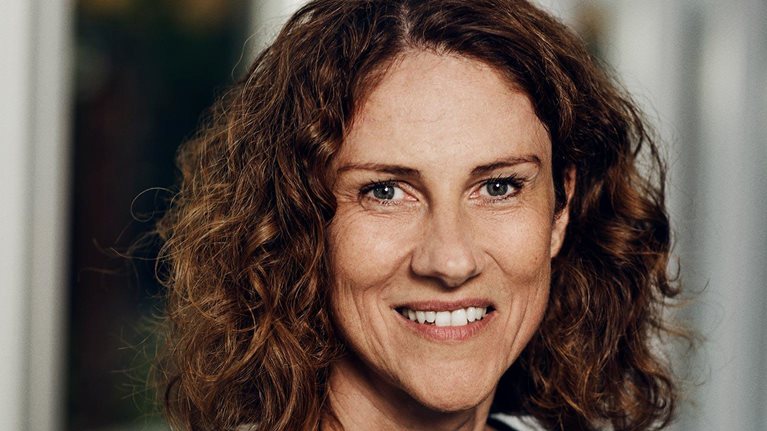Recently, Merck executive board member and CEO of Merck Healthcare Belén Garijo sat down with McKinsey’s Georg Nederegger to discuss what’s next for the pharma industry. In this wide-ranging interview, part of the Biopharma Frontiers series, she talks about the opportunities ahead, her company’s approach to partnerships, and ways it is translating a strategic vision into real action. An edited version of her remarks follows.
Interview transcript
McKinsey: Looking ahead, where do you see the biggest growth opportunities for the pharma industry in general and Merck in particular?
Belén Garijo: Between 2016 and 2020, more than half of the growth in the pharma market is expected to come from the US, with China and other emerging economies contributing the second-biggest share. We’re expanding in China and expect significant growth from developing markets in general over the next ten years. In terms of therapeutic areas, oncology and immunology are our largest specialty markets, with expected average growth of 11 percent and 6 percent per year respectively by 2025. Diabetes is another exciting market, expected to reach around $18 billion globally in 2025.
Overall growth in the global pharma market is expected to be in the mid-single digits, which is promising. That growth is being accelerated by tailwinds such as an aging population with greater healthcare needs and the increasing adoption of Western lifestyles in emerging markets. Our R&D productivity efforts will continue to be driven by unmet medical needs in biopharma. Greater awareness of health and quality of life in society in general will increase demand for innovation as we move forward.
Driving breakthrough innovation in oncology, immuno-oncology, and immunology will accelerate growth in our healthcare market, where we expect to achieve around $80 million in 2025. We are a leader in fertility and continue to expand through our fertility technology strategy. Our general medicine portfolio has a significant presence in growth markets and we expect to increase our market share in the US and Europe.
McKinsey: Given the huge changes in the external environment over the past few years, what are the biggest challenges facing the industry today?
Belén Garijo: Affordability is a big concern for all healthcare stakeholders; regulatory hurdles are another; and increasing competitiveness, mainly in specialty medicines, will challenge all companies to become much more agile. But I believe the biggest challenge is to keep delivering a flow of breakthrough innovation to meet patients’ needs. We can control many things and take operational steps to mitigate potential risks, but we can’t control the biological risk associated with developing new assets, and that remains a challenge for the pharma industry and for us as a company.
We live in a world where there is rising popular mistrust of public and private institutions, but I think it would be simplistic to claim that the pharmaceutical industry is deeply mistrusted. In a business that relates to fundamental aspects of health and well-being, a key ingredient of trust is transparency, especially around clinical trials and science. We need to make every effort to raise pharma’s credibility with the public. If we can help develop people’s knowledge, they will be much better informed when it comes to making judgments about our industry.
At Merck, we are committed to working with our partners and stakeholders to make open and continuous dialogue the norm. That will allow us to build a trust-based partnership with patients, healthcare professionals, business partners, and other communities.
McKinsey: How are you preparing your organization to meet challenges like these?
Belén Garijo: Over the past five years, we’ve completed an unprecedented transformation. First we globalized our operations and went from a Europe-centric company to a company with a significant presence in growth markets and an increasing presence in the US. It was a painful process, and it started where all transformations start: in finding efficiencies and establishing solid fundamentals. Then we decided to focus our biologics portfolio on developed markets such as Europe, the US, and Japan, and to capitalize on our strong portfolio of general and fertility medicines in growth regions such as China, which has become our fastest-growing market in healthcare.
As we went through our transformation, we managed to keep our people engaged. Not many companies have undergone such radical change without losing business momentum, but we’ve delivered 23 consecutive quarters of annual growth in healthcare. What I’m really proud of is that we’ve turned around our R&D and its operating model in the past three years. We now have a highly productive discovery machine that has allowed us to take very promising assets to development. It’s been a great journey, and this has positioned Merck to deliver sustainable success in the coming years.
Our business has delivered in the past and will continue to deliver in the future. We don’t have a major patent cliff ahead of us, and we’ll continue to vigorously defend our big brands. We’ve made smart decisions about allocating our resources and aligning investments with our portfolio to capture opportunities in both developed and growth markets.

Biopharma Frontiers: What the future holds for the industry
McKinsey: What role do partnerships play?
Belén Garijo: Partnerships are extremely important for us, but we pursue them only where there’s a common agenda with clear alignment on strategic goals. For instance, we’re partnering with Pfizer in a global alliance to develop and commercialize the first PD-L1 candidate in our pipeline, avelumab. This alliance gives us early entry in oncology in the US through our joint promotion of the drug Xalkori, and more important, it gives us a chance to secure a position in the highly competitive space of PD1 and PD-L1.
In 2017, we announced another venture: a cooperation with Vertex to pursue a leadership position in one of the most attractive areas in oncology, the DNA damage and repair segment. We’re extremely excited about this partnership, which will help us develop our own assets and those we acquired from Vertex, complement our internal efforts in DNA damage and repair, and multiply the potential of our success in immuno-oncology.
McKinsey: How is your company looking to position itself in an increasingly competitive marketplace?
Belén Garijo: For us as a midsize company, covering the entire pharmaceutical spectrum is not an option. It doesn’t make sense for us to be active in every therapeutic area, so I consider focus to be a critical success factor, especially in R&D. Our biopharma is focused on areas of very high medical need that are also fast-growing and highly attractive markets. Having said that, at the group level, we see diversification as a strength. It helps Merck not only to participate in highly attractive markets such as life sciences and performance materials, but also to diversify our operational risk profile.
Our ambition is to become a global specialty innovator with particular emphasis on high-value specialty medicines, and to operate in complex conditions like cancer and other immunological disorders. To deliver breakthrough innovations and long-term sustainable growth, we need to focus, make decisions effectively, and manage our portfolio in a way that’s fully consistent with our strategy.
McKinsey: How does your organization translate this vision into action?
Belén Garijo: Our business has three cornerstones that inspire our teams: we are driven by science, we are powered by patients’ needs, and we pursue growth through innovation.
The science element relates to our pioneering approach to research that enables us to pursue transformative innovation in oncology and immuno-oncology. We constantly refine our focus on mechanisms and targets, develop deep internal scientific expertise, and take a pragmatic approach to bringing in innovation from outside where we can’t develop things on our own, as we’re doing in our partnership with Pfizer.
What do I mean by powered by patients’ needs? That’s about the way we make decisions on our R&D priorities. We never privilege numbers, and we relentlessly pursue breakthrough therapies that we believe will change the way cancer is addressed. We’ve demonstrated this commitment by mobilizing to ensure that patients have access to the right treatment and care for their individual needs.

How pharma companies can better understand patients
When it comes to growth through innovation, that means being first to market, having the best assets, and building enough portfolio depth to deliver. We’ve made bold decisions to streamline our pipeline, concentrate our efforts, and grow our global footprint by maximizing our existing assets. For example, we’re launching Bavencio, which will represent a first-in-class immunotherapy in Merkel cell carcinoma. At the same time, we’re continuing to seek opportunities to address unmet needs in rare diseases and indications where patient numbers may be small but there’s scope to enhance people’s quality of life.
McKinsey: Going back to your point about building trust, what steps are you taking as a company to improve public perceptions of the industry?
Belén Garijo: Our commitment to eradicating schistosomiasis is a great illustration of how we work to serve patient needs in emerging and developing countries. In partnership with the WHO [World Health Organization], we’ve donated more than half a billion tablets to treat more than 100 million patients in Africa—most of them schoolchildren, who are the most affected by this devastating disease. Another example is our Merck cancer access program to increase the number of medical oncologists and improve capacity and capabilities in emerging countries. By doing that we hope to ensure that our efforts are sustainable and go beyond simply providing drugs at affordable prices.
We also collaborate with universities to improve access to diabetes and cancer care in Africa and Asia. As a result, we now rank fourth in the access to medicine index, up from seventeenth in 2010. More broadly, many of our activities go hand in hand with CSR [corporate social responsibility] initiatives to help raise awareness of certain diseases, improve the way they are managed, and promote prevention.


